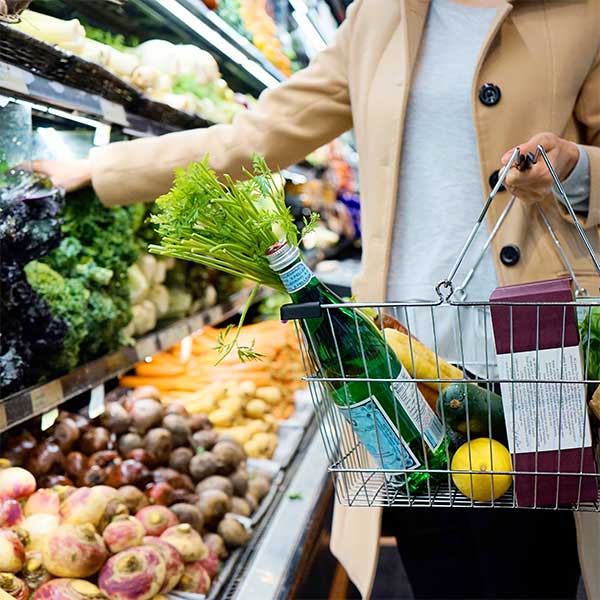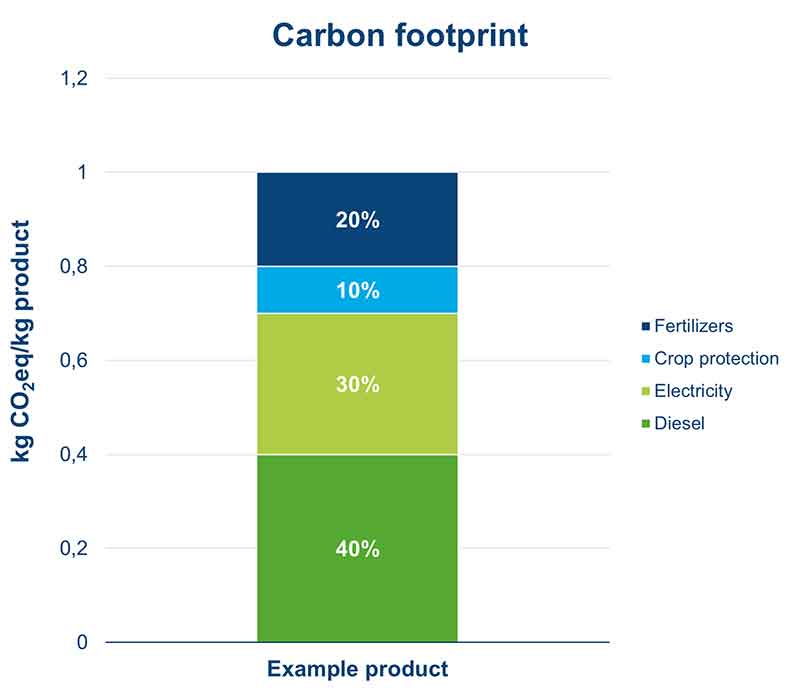Measuring an environmental footprint is crucial and one of the first steps in becoming more sustainable. It helps identify areas for environmental impact reduction, make more future-proof choices, and showcase efforts to produce sustainably to stakeholders.
Also, in the retail sector, analyzing the footprints of food products is highly relevant. The sector has a significant environmental impact on the food supply chain and has a substantial societal influence. Analyzing the footprint can increase transparency in the retail supply chain for both consumers and suppliers. It gives consumers the tools they need to make sustainable buying choices in the supermarket.
At the same time, it helps suppliers and retailers build a more resilient and environmentally sustainable food system by providing insight into the environmental impact, reduction potential and prevention from greenwashing marketing activities. Furthermore, in the future, there will be increasing legal and regulatory attention to environmental footprinting. Plenty of reasons for the retail sector to get started right away. However, the analysis and comparison of the environmental performance of food products is rather complex. In this context, 2 topics are crucial: the footprint analyses are conducted following a harmonized methodological approach, and high-quality supply chain data is required. These 2 factors lay the foundation for fair analyses and comparisons to take the right steps towards a greener future.
Mérieux NutriSciences works with many stakeholders on these specific topics and puts all efforts into supporting organizations in understanding their environmental impact in the agri-food value chain and creating a sustainable and healthy planet for current and future generations together.
In this post, we want to take a moment to illustrate the 2 key topics mentioned above and show how the retail sector can take responsibility and be a frontrunner in environmental sustainability.
Harmonized Life Cycle Assessment Methodology for Ecolabeling
Ecolabelling can be an effective way to provide consumers with a quick and recognizable way to identify products that meet specific sustainability criteria, helping them to make more informed and conscious choices. However, the current landscape of ecolabels is confusing and untransparent and does not help consumers make conscious choices in the supermarket. At the same time, it does not help the supply chain to become more sustainable either. A consistent harmonized methodological approach is crucial to support stakeholders in the food supply chain to measure their environmental footprint and translate this into for instance, a front-of-pack ecolabel. Such a methodology will facilitate fair calculations, enabling comparability between food products within and between food categories.
Mérieux NutriSciences and Foundation Earth, an independent, non-profit organisation, research institutes and industry, developed a harmonized calculation methodology for ecolabeling of food products. This methodology is grounded in the Life Cycle Assessment (LCA) framework, which helps to calculate the environmental impact of a product or process throughout its entire life, from raw material extraction to production, use, and disposal. It also aligns with the latest European developments of the Product Environmental Footprint (PEF) initiative to streamline LCA calculations. The Foundation Earth methodology utilises primary data from specific supply chains and is applicable to all different food categories. It tackles several LCA topics like system boundary, functional unit, primary and secondary data requirements, data quality assessment and calculation rules.
In March 2023, the methodology was launched and is now available on an open-source basis. It can be used to provide front-of-pack eco-scores to inform consumers and support them to make sustainable choices in the supermarket.
Collection of High-Quality Supply Chain Data
Next to a consistent calculation methodology, the collection of high-quality data is also a crucial element for accurate assessments. Within the food value chain, farm data appears to be the most relevant, as in most cases, farm activities make the highest contribution to the total footprint of a food product. However, data collection at the farm level is challenging and complex due to the involvement of numerous stakeholders on a global scale. This complexity also results in time-consuming and, consequently, costly data collection. Albert Heijn, a Dutch retailer, and Mérieux NutriSciences developed an online tool to collect primary farm data of fruit & vegetable producers around the world. These data are the input for product footprint analyses of fresh produce. What sets this approach apart is the opportunity to accomplish large-scale data collection with limited reporting burden by focussing on the most relevant data points, which can be used for footprint calculations. Based on the insights of the footprint calculations, Albert Heijn can set up emission reduction programmes, improve its supply chain, and contribute to a more sustainable society.
To initiate progress toward a more sustainable retail sector, 2 key steps are clear: first, adopt a consistent calculation method; second, gather high-quality primary data.



